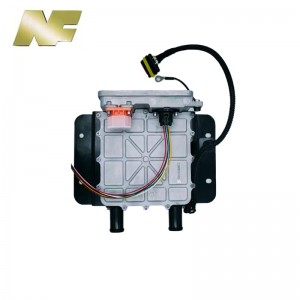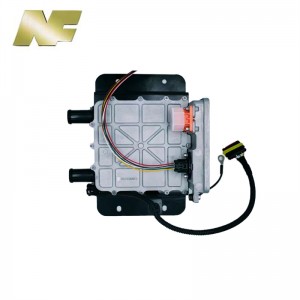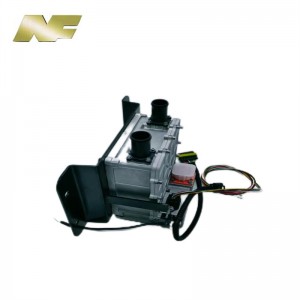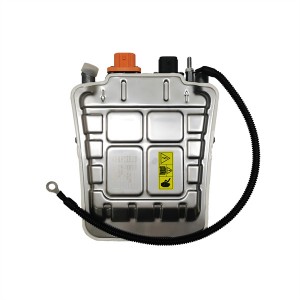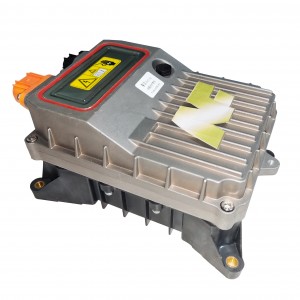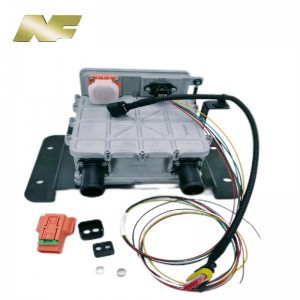NF 620V DC24V High Voltage Coolant Heater 9.5KW HV Coolant Heater
Description
As the world transitions to a sustainable future, electric vehicles (EVs) have emerged as a promising solution to reducing carbon emissions and combating climate change. With the increasing popularity of electric vehicles, it is crucial to explore the technologies that allow them to operate efficiently in cold climates. In this blog, we take a deep dive into the fascinating world of high voltage coolant heaters (also known as HV coolant heaters) and their critical role in keeping electric vehicles performing at their best.
Learn about High Voltage Coolant Heaters (HVCH):
High-voltage coolant heaters are an integral part of the electric vehicle heating system, responsible for preconditioning the vehicle's cabin and ensuring battery thermal management in cold weather conditions. HVCH provides immediate warmth by heating the cabin and warming the coolant in the vehicle's battery pack, enabling efficient battery operation. These advanced heating systems use positive temperature coefficient (PTC) heating technology, where the resistance of the heating element increases with temperature, making them highly efficient for electric vehicles.
Benefits of HVCH for EVs:
1. Enhance battery performance:
Batteries perform best within a certain temperature range. The HVCH plays a vital role in warming up the battery pack, ensuring its temperature remains within the ideal operating range. By maintaining battery temperature, HVCH can improve efficiency, extend life and enable faster charging, especially during cold weather.
2. Instant and efficient cabin heating:
Conventional internal combustion engines generate excess heat that can be used to heat the cab. However, EVs lack this natural source of heat, so HVCH is critical. These heaters provide instant and efficient heating of the cabin, ensuring EV owners have a comfortable driving experience regardless of the outside temperature.
3. Energy-saving solutions:
Thanks to PTC heating technology, the HVCH optimizes energy use by automatically adjusting the required power as the temperature rises. This efficient operation minimizes energy consumption, preserving the vehicle's battery power for longer driving range.
4. Environmental solutions:
Since electric vehicles are already very environmentally friendly, HVCH further contributes to their sustainable development. HVCH plays an important role in reducing greenhouse gas emissions by reducing the need for vehicles to idle for extended periods of time and reducing reliance on the internal combustion engine for cabin heating.
in conclusion:
In an era of global warming and the need to reduce carbon emissions, electric vehicles have become a beacon of hope for the auto industry. High-pressure coolant heaters are an essential component in electric vehicles, providing reliable cabin heating and optimizing battery performance in cold weather conditions. Adoption of this technology will not only enhance the driving experience for EV owners, but more importantly, contribute to a sustainable future.
As the automotive industry continues to evolve, the implementation of innovative solutions such as high-voltage coolant heaters ensures the growth and success of electric vehicles. As technology advances and research continues, these heaters will undoubtedly become more efficient, further improving the electric vehicle experience for users around the world. As consumers and governments place greater emphasis on sustainable transport options, HVCH will undoubtedly play a key role in the continued adoption and success of electric vehicles.
Technical Parameter
| Item | Content |
| Rated Power | ≥9500W(water temperature 0℃±2℃, flow rate 12±1L/min) |
| Power control method | CAN/linear |
| Weight | ≤3.3kg |
| Coolant volume | 366ml |
| Waterproof and dustproof grade | IP67/6K9K |
| Size | 180*156*117 |
| Insulation resistance | Under normal conditions, withstand 1000VDC/60S test, insulation resistance ≥ 120MΩ |
| Electrical properties | Under normal conditions, withstand (2U+1000)VAC, 50~60Hz, voltage duration 60S, no flashover breakdown; |
| Tightness | Control side air tightness: air, @RT, gauge pressure 14±1kPa, test time 10s, leakage no more than 0.5cc/min,
Water tank side airtightness: air, @RT, gauge pressure 250±5kPa, test time 10s, leakage not exceeding 1cc/min; |
| High voltage side: | |
| Rated voltage: | 620VDC |
| Voltage range: | 450-750VDC(±5.0) |
| High Voltage Rated Current: | 15.4A |
| Flush: | ≤35A |
| Low voltage side: | |
| Rated voltage: | 24VDC |
| Voltage range: | 16-32VDC(±0.2) |
| Working current: | ≤300mA |
| Low voltage starting current: | ≤900mA |
| Temperature range: | |
| Operating temperature: | -40-120℃ |
| Storage temperature: | -40-125℃ |
| Coolant temperature: | -40-90℃ |
Application

Packaging & Shipping


Our Company

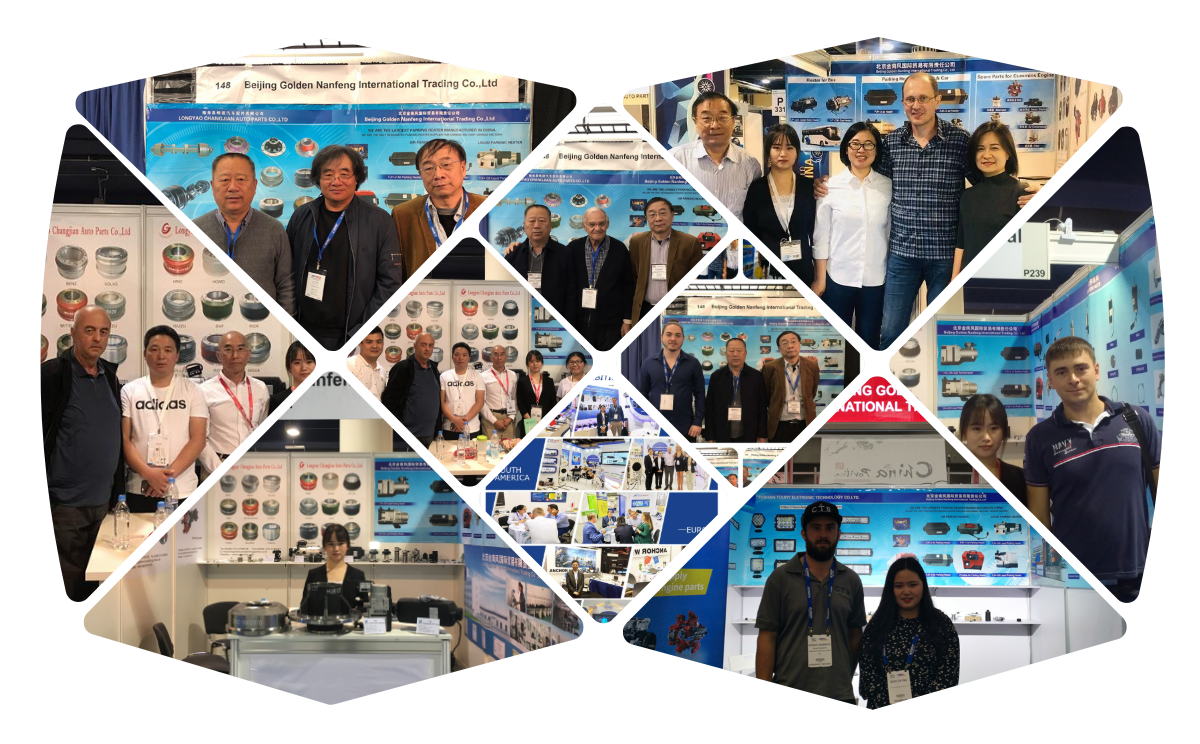
Hebei Nanfeng Automobile Equipment (Group) Co., Ltd is a group company with 5 factories, that specially produce parking heaters, heater parts, air conditioner and electric vehicle parts for more than 30 years. We are the leading auto parts manufacturers in China.
Our factory's production units are equipped with high tech machineries, strict quality,control testing devices and a team of professional technicians and engineers endorsing the quality and authenticity of our products.
In 2006, our company has passed ISO/TS16949:2002 quality management system certification. We also bagged the CE certificate and Emark certificate making us among the only few companies in the world acquiring such high level certifications.
Currently being the largest stakeholders in China, we hold a domestic market share of 40% and then we export them around the globe particularly in Asia, Europe and Americas.
Meeting the standards and demands of our customers have always been our top priority. It always encourages our experts to continuously brain storm, innovate, design and manufacture new products, impeccably suitable for the Chinese market and our customers from every nook of the world.
FAQ
1. What is electric vehicle PTC coolant heater?
An EV PTC (Positive Temperature Coefficient) Coolant Heater is a device that helps heat the engine coolant of an EV in cold conditions. It uses PTC technology to provide efficient and fast heating.
2. How does electric vehicle PTC coolant heater work?
The PTC coolant heater consists of a PTC element that generates heat when current passes through it. Embedded in the coolant circuit, these elements transfer heat to the engine coolant, warming it up.
3. What are the advantages of using electric vehicle PTC coolant heater?
The benefits of using a PTC coolant heater include faster warm-up times, reduced battery drain during cold starts, improved cabin heating, and enhanced overall vehicle performance in low temperature conditions.
4. Can an electric vehicle PTC coolant heater be retrofitted to an existing vehicle?
Yes, PTC coolant heaters can be retrofitted into existing electric vehicles in most cases. However, it is recommended to consult your vehicle manufacturer or authorized service center to ensure compatibility and proper installation.
5. Is the installation of electric vehicle PTC coolant heater complicated?
For a trained professional, the installation of a PTC coolant heater should not be complicated. However, it is recommended to seek professional assistance or have it installed by an authorized service center for optimum performance and safety.
6. How does the PTC coolant heater affect the cruising range of electric vehicles?
The use of PTC coolant heaters may have a slight impact on the range of electric vehicles due to the increased power consumption during the heating process. However, its effects can be minimized by warming up the vehicle while connected to an external power source.
7. Does electric vehicle PTC coolant heater save energy?
Yes, PTC coolant heaters are considered energy efficient. They are designed to provide fast and efficient heating while minimizing power consumption. However, energy efficiency may vary by specific model and manufacturer.
8. Are there any maintenance requirements for electric vehicle PTC coolant heaters?
In general, PTC coolant heaters require very little maintenance. Periodic inspections are recommended to ensure proper operation, the coolant system should be cleaned and checked regularly by a professional to maintain peak performance.
9. Can the electric vehicle PTC coolant heater be used in all climates?
Yes, electric vehicle PTC coolant heaters are available in all climates. They are especially useful in cold regions where engine warm-up is critical. However, it is important to consider the specific temperature range and suitability for extreme climates of a PTC coolant heater.
10. Is it safe to use electric vehicle PTC coolant heater?
Yes, PTC coolant heaters are generally safe to use if installed and maintained properly. They are rigorously tested to meet safety standards and regulations. However, it is important to follow the manufacturer's instructions and seek professional installation and maintenance help to ensure safe operation.



